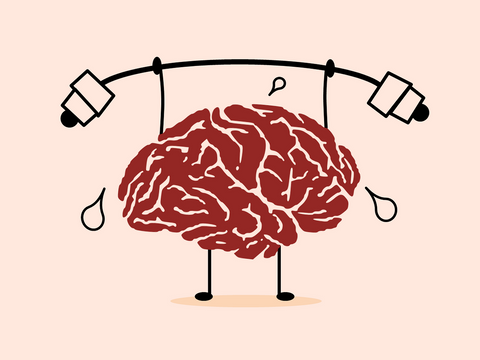In the last few years, the importance of mental health has taken center stage across the country. As of November 2019, there have been a total of 369 mass shootings in the United States, meaning there has been at least one mass shooting in the country every day of the year. At nearly every occasion of one of these tragedies, the conversation turns to not only gun control, but also about the importance of mental health.
Of the 369 mass shootings in 2019, 45 were school shootings, nearly an average of one school shooting a week. It is no surprise to anyone that students and parents no longer feel schools are as safe as they used to be. But in even the safest of schools, students are not safe from the stress of their classwork, social life, family issues, and the pressure to succeed.
Because of this, it is important for families, as well as school faculty and staff, to notice the warning signs of mental health issues and offer support to young people when they clearly are having trouble coping. Mental health is just as important, if not more important, as physical health and if not treated properly, the results could be both tragic and deadly.
Learning the Facts about Mental Health Disorders in Children
Some of the most common mental health disorders diagnosed in children include attention-deficit/hyperactivity disorder (ADHD), anxiety disorders, behavioral disorders, mood disorders, eating disorders, and schizophrenia.
According to numbers provided by the CDC,
- 4% of children between the ages of 2-17 (approx. 6.1 million) have received an ADHD diagnosis.
- 4% of children between the ages of 3-17 (approx. 4.5 million) have a diagnosed behavioral problem
- 1% of children ages 3-17 (approximately 4.4 million) have diagnosed anxiety
- 2% of children ages 3-17 (approximately 1.9 million) have diagnosed depression.
Treatment of these conditions vary, with age and poverty level affecting the likelihood of children receiving some kind of treatment. The same data showed:
- 1% of children ages 3-17 received treatment for depression
- 3% of children ages 3-17 received treatment for anxiety
- 5% of children ages 3-17 received treatment for a behavioral disorder
Depression and anxiety are higher in children ages 12-17, while behavioral disorders are greatest for children 6-11. Behavioral disorders are also high among children 12-17. One in six children ages 2-8 have a mental, behavioral, or developmental disorder, while the rate for children below the poverty level is 1 in 5. Gender also plays a role in the likelihood of developing a mental health disorder. Boys ages 2-8 were more likely to have mental, behavioral, or developmental disorders versus girls.
Addressing the Myths in Child Mental Health
While the data on mental health is clear, there are still many myths people accept as truth about children’s mental health.
The Child Mind Institute lists the seven common myths:
- A child with a psychiatric disorder is damaged for life.
- Psychiatric problems result from personal weakness.
- Psychiatric disorders result from bad parenting.
- A child can manage a psychiatric disorder through willpower.
- Therapy for kids is a waste of time.
- Children are overmedicated.
- Children grow out of mental health problems.
People who have never received treatment for mental health related issues can often feel as though they could either power through their feelings of anxiety or depression or believe they’re a weak person for feeling depressed. But the reality is medical research has advanced enough to prove psychiatric disorders are not a result of a failure of a person’s will power or the result of bad parenting, and it is not a condition that needs to be accepted and lived with for the rest of one’s life.
There is a danger in believing therapy will not work or is a waste of time. Therapy can be a way to express one’s feelings to someone who can help a great deal in discovering the root of mental or emotional problems. Children and teens often don’t have the words or life experience to express the feelings they are experiencing, and this often can cause them to feel they are alone. This can cause them to withdraw, hurt themselves, or act recklessly.
Though persons may deal with a mental disorder their entire life, it does not mean they cannot be functional members of society and have a rich, fulfilling life. There is a common perception amongst those who do not understand psychiatric issues and those who have never been diagnosed that anyone suffering is permanently damaged. It is important to recognize that the myths which have propagated many stigmas surrounding mental health, contribute to more people refusing treatment because they either believe treatment is pointless, that people will look down at them, or treat them differently.
Recognizing the Warning Signs
Being able to spot the signs your child may have a mental illness is critical to making sure they get the professional medical attention they need. It’s important to note that any behavior out of the ordinary for your child could be a sign something could be wrong and speaking to your child is important to find out how they’re feeling.
Some warning signs of mental illness in children include:
- Mood Changes
- Intense Feelings
- Behavior Changes
- Difficulty Concentrating
- Unexplained Weight Loss
- Physical Symptoms
- Physical Harm
- Substance Abuse
Physical symptoms, self-harm, or having a disregard for their own personal safety are major indicators that a child or teen may be experiencing a mental illness which requires immediate medical attention.
Emotional changes such as mood, behavioral, or concentration may be more difficult to discern as a mental illness unless they are completely out of the ordinary for a child and happen suddenly. It is possible that many parents believe emotional and behavioral issues such as these are a part of growing up and may not consider them a mental illness.
However, whenever a parent is in doubt, it is always wise to seek the help of a medical professional. Speak to teachers, friends, and relatives to see if they’ve also noticed changes. It’s important to gather as much information as possible and provide it to your child’s doctor so they can make an accurate assessment.
Managing the Stress of Growing Up
As parents and adults, we often fail at managing the stress in our own lives and can feel overwhelmed. Work, school, family, and social obligations can weigh heavily on the mind and there often is no time in our schedules to relax and take care of ourselves.
Without proper stress management, adults can become overwhelmed with life and may search for things such as alcohol or recreational drugs to help them find a moment of peace in a hectic life. Some may find comfort in prayer, meditation, or exercise, allowing themselves to calm their minds and focus.
It’s easy to forget that children and teens can become overworked and stressed with their own daily lives. Extra-curricular activities such as sports, volunteering responsibilities, academic clubs, and assisting at home with chores, while may not seem stressful to grown adults, can be mentally taxing for a child who has no concept of stress management. Added to this are the pressures to do well in classes, make high grades, social pressures, getting into a great college, and for some, doing all of it while maintaining a job.
It’s important for parents to remember children deserve time to be children the same way adults deserve time off from adult responsibilities. Being able to step away from responsibilities and have moments of enjoyment can greatly improve the quality of life for even the busiest of people.
Some tips to keep in mind when helping children and teens cope with stress include:
- Don’t overschedule – children with too many things to do can become overwhelmed easily by having a full schedule. While it may be helpful for parents to keep children busy, it robs children and teens from being able to relax.
- Make Time for Play – make sure children have time to do the things they enjoy like reading, video games, sports, and even make time to do activities with them such as going to theme parks or the cinema.
- Sleeping is Important – Adults understand how precious sleep hours are, but children and teens may rather stay up late to binge on videos or play games. Set a bedtime so children are well rested.
- Encourage Kids to Listen to their Bodies – Physical signs of stress can manifest as headaches or an upset stomach. If having a full schedule starts to lead to physical issues, encourage them to talk to you.
- Manage Stress Yourself – Teaching children to manage their stress better is easier when you can manage your own. Reducing your own stress can help reduce your child’s stress.
- Mistakes Happen – Not everything is going to go right and when a child makes mistakes or fails, they may feel like it’s the end of the world. Teaching them better coping methods for failure can help them better deal with it when it ultimately happens again.
Being Vigilant and Helpful
Mental illness and stress among children are easily spotted when parents and family members are paying close attention. Noticing changes in a child’s behavior early can be beneficial in treating a psychiatric condition if one is diagnosed.
Speak to a medical professional if noticeable changes in a child or teen are cause for concern, especially when they are harming themselves, have a disregard for their own safety, the safety of others, or have suddenly become reclusive.
Furthermore, a family that practices stress management and encourages fun time for both adults and children can go a long way in keeping away the exhaustion and depression that comes from feeling overworked and pressured to succeed. Listening to children and understanding how they are feeling can help a long way in learning how to help them deal with their complex emotions.




Comments (0)
There are no comments for this article. Be the first one to leave a message!